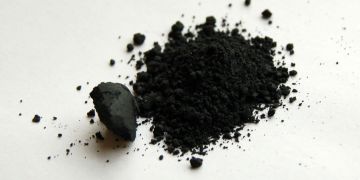Dietary Sources
Manganese is found in whole grains, leafy vegetables and tea. Absorption of Manganese is inhibited by ingestion of some foods including beans, certain seeds, sweet potatoes and cabbage.
Health Benefits of Manganese
Arthritis, Fibromyalgia, and Premenstrual Syndrome The antioxidant superoxide dismutase (SOD) limits inflammation-related joint damage. Unfortunately SOD levels are depressed in arthritis. In theory manganese would enhance SOD levels. Limited studies suggest that glucosamine, chondroitin, and manganese do reduce pain. Theoretically the glucosamine-chondroitin-manganese strategy may have validity since people with the chronic pain and fatigue of fibromyalgia appear to have decreased levels of calcium, iron, manganese, and magnesium, based on hair-fiber studies. Moreover, calcium, chromium, copper, and manganese blood levels appear depressed in PMS sufferers, but show improvement with a manganese-enhancing diet.
Diabetes Lower manganese blood levels have been associated with diabetes. In diabetics with higher blood levels of manganese, LDL cholesterol levels were lower, suggesting that manganese has a positive effect on metabolism of lipids in diabetics.
Epilepsy Lower manganese blood levels have been associated with seizures, but no cause-effect relationship has been established. Based on rodent studies, level of manganese in an organism does not appear related to incidence of seizures or to their severity.
Osteoporosis Boron, manganese, and vanadium are necessary components of bone building and maintenance. Manganese, when taken with calcium, copper, and zinc appears to inhibit bone loss in the spine in post-menopausal women, a group at risk for osteoporosis. Osteoporosis incidence in both men and women (25% rate and 50% rates, respectively) have bone fragility from the malady sufficient to break bones.
No RDA
There is no recommended dietary allowance (RDA) for manganese. An “Adequate Intake” (AI) estimate may serve as a nutrition guesstimate for healthy individuals. Age-specific data suggest a dosage 3 mcg for newborns; 2.3 mg for adult males; and 1.8 mg for adult women, not lactating or pregnant. Many adults may absorb 11 mg a day without damaging their bodies, but large dosing of manganese brings damaging side effects, particularly when liver function is reduced. Diet and supplemental levels of manganese should not exceed 11 mg a day. Although diet evaluation is a critical factor to consider when making a decision to augment diet with supplements, the effects of medications (e.g., antacids, laxatives, antibiotics, etc.) must be considered as well since they will affect the absorption of both dietary and supplemental manganese. Suggested dosing in children is considerably below adult levels and the risks are not clearly identified for youngsters. Inhalation of manganese over longer periods may be associated with tremor side effects. The presence of iron-deficiency anemia may cause greater uptake of manganese. Low fat intake decreases manganese uptake while protein in milk enhances its absorption.





